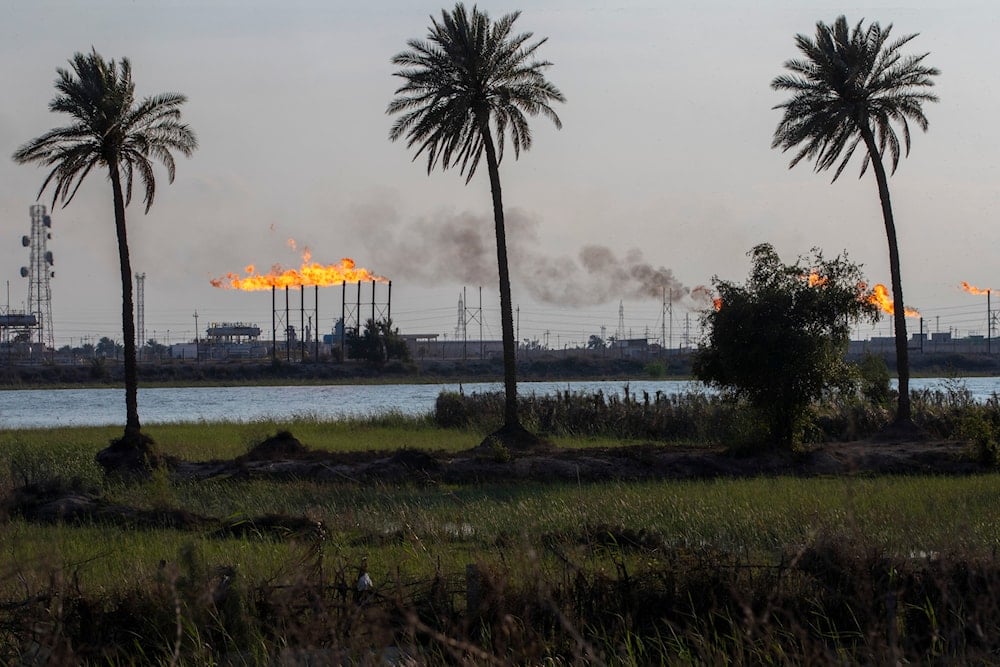Iraq aims to end gas flaring by mid-2029
Oil Minister Hayan Abdul Ghani cites significant progress in gas capture, self-sufficiency efforts, and infrastructure upgrades.
-

The Nihran Bin Omar oil field flare stacks burn north of Basra, Iraq, on Wednesday, March 22, 2023. (AP)
Iraq plans to stop flaring gas by mid-2029, according to Oil Minister Hayan Abdul Ghani, who said the country is making good progress on capturing the gas and improving its electrical infrastructure.
Abdul Ghani explained to the state-run Iraqi News Agency that "there is a shortage in the amount of invested natural gas needed by power stations, but gas investment operations are continuing and progressing clearly," highlighting both the current challenge and the ongoing progress.
He stated that the rate of gas investment had climbed from 53% at the start of the government's term to 74% currently, adding that this boost was achieved through several new projects which have enhanced gas capture and supplied the national power grid.
Iraq en route to gas self-sufficiency
The minister said additional projects expected over the next three years will further boost output, noting that the Total contract alone will provide about 650 million cubic feet of gas per day, in addition to the contributions from the Akkas and Mansuriya projects.
He added that “14 contracts were signed with companies under the fifth supplementary and sixth licensing rounds, which will supply no less than 700 to 800 million cubic feet of gas,” while expressing optimism that Iraq will achieve gas self-sufficiency.
Abdul Ghani reaffirmed “the government’s determination to stop gas flaring by mid-2029,” stating that gas produced in the Kurdistan Region is used to operate power plants there and adding that Iraq currently exports about 3,000 tons of liquefied gas daily through Khor al-Zubair Port.
Gas flaring, which is the burning of natural gas released during oil extraction when capture facilities are unavailable, remains one of Iraq’s largest environmental challenges as it wastes valuable fuel and contributes significantly to carbon emissions.

 2 Min Read
2 Min Read








